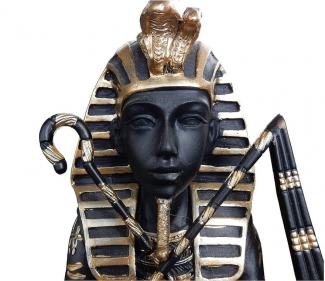
Nubia is one of the world’s oldest civilizations, but the more powerful Egyptian empire often overshadowed it. The two kingdoms frequently engaged in war, with Egypt plundering Nubia.
But that’s not the end of Nubia’s story.
One battle changed history.
Led by King Piye, a Nubian army of only 700 warriors marched north to Egypt’s spiritual center. There, the Nubians confronted their conquerors! But, this time, Piye had something else in mind.
Piye knew his Nubian history. He understood that many Egyptians considered Nubia’s spiritual center the birthplace of Amun, the revered Egyptian god. So here’s what he did.
King Piye defeated three smaller armies around the capital of Memphis, then overtook Memphis itself. But instead of staying in Egypt, he went back to Nubia – and declared his kingdom was under Amun's blessing! Then something extraordinary happened.
An earthquake destroyed many of Egypt’s pyramids, as if Amun appreciated Piye’s act of loyal defiance! What’s more, the Egyptians accepted their defeat in Memphis by the Nubians.
Because he knew his history and culture, King Piye was able to rule Egyptians in Nubia for many years. We must always strive to learn and honor our authentic histories because, like Piye, we can draw power from the traditions that have sustained us for millennia.